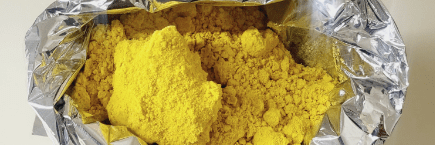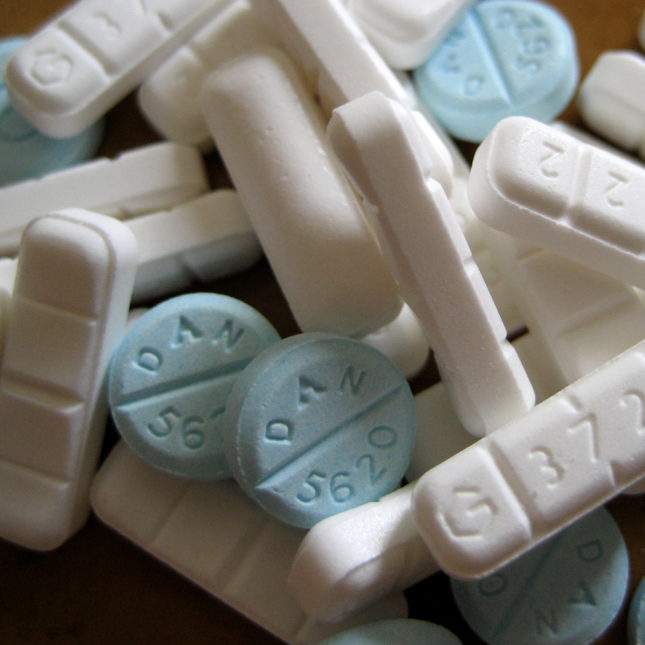Synthetic opioids have increasingly become a public health crisis worldwide, and one such substance, known colloquially as “Pinky,” has drawn attention for its deadly risks. Pinky, the street name for U-47700, is a synthetic opioid originally developed in the 1970s as a painkiller. Despite its initial purpose, it was never approved for medical use due to its extreme potency and unpredictable effects. In recent years, it has emerged in illegal markets as a dangerous recreational drug.
This article explores the significant risks associated with Pinky, highlighting its potency, misuse, and the tragic consequences of its growing popularity.
What Is Pinky (U-47700)?
U-47700, nicknamed “Pinky” due to its pinkish hue when sold as a powder or pill, is a synthetic opioid designed to mimic the effects of morphine and heroin. It is a μ-opioid receptor agonist, meaning it binds to specific receptors in the brain to produce pain relief and euphoria.
Despite its seemingly innocent name, Pinky is far from harmless. With potency estimated to be 7.5 times greater than morphine, even tiny amounts of the substance can cause severe harm.
The Effects of Pinky
Pinky produces effects similar to other opioids, such as:
- Euphoria: Users often report a temporary feeling of intense happiness and well-being.
- Sedation: It can create a state of deep relaxation and drowsiness.
- Pain relief: Like other opioids, Pinky has analgesic properties.
However, these effects are short-lived and come with dangerous and potentially fatal consequences.
Why Is Pinky So Dangerous?
1. High Risk of Overdose
Pinky’s extreme potency increases the risk of overdose even for experienced drug users. A slight miscalculation in dosage can lead to respiratory depression, where breathing slows to dangerous levels or stops entirely, often resulting in death.
2. Unregulated Production
Pinky is often manufactured in clandestine labs with no oversight or quality control. This results in inconsistent potency and the potential for harmful contaminants. Users may unknowingly consume a dose far stronger than anticipated.
3. Dependency and Addiction
Like other opioids, Pinky has a high potential for addiction. Regular use leads to physical dependence, where the body becomes reliant on the drug to function. This can quickly spiral into addiction, causing devastating consequences for the individual and their loved ones.
4. Fatal Interactions with Other Substances
Many users combine Pinky with other drugs like alcohol, benzodiazepines, or stimulants, further increasing the risk of fatal overdoses. The combination can exacerbate respiratory depression and other life-threatening side effects.
Reported Cases and Public Health Concerns
Pinky has been linked to numerous overdose deaths across the United States and other countries. Its availability online and in illegal markets makes it accessible to individuals seeking cheap, potent opioids, fueling the ongoing opioid epidemic.
The drug has also gained popularity among younger demographics, who may underestimate its dangers due to its deceptive nickname and appearance.
Symptoms of Pinky Overdose
Recognizing the signs of an opioid overdose is critical. Symptoms include:
- Shallow or stopped breathing
- Blue or grayish lips and nails
- Pinpoint pupils
- Extreme drowsiness or unconsciousness
- Cold, clammy skin
If an overdose is suspected, immediate medical attention is necessary. Administering naloxone (Narcan), an opioid antagonist, can reverse the effects of an overdose if given promptly.
How to Combat the Spread of Pinky
1. Public Awareness Campaigns
Educating communities about the dangers of Pinky and synthetic opioids is essential. Highlighting the risks can deter potential users and encourage those struggling with addiction to seek help.
2. Access to Treatment
Expanding access to addiction treatment programs, including medication-assisted treatment (MAT) and counseling, is crucial in addressing opioid addiction.
3. Stricter Regulations
Enforcing stricter regulations on synthetic opioids like Pinky can help curb their availability on the black market. Monitoring online sales and shutting down illegal labs are vital steps.
4. Distribution of Naloxone
Making naloxone readily available in high-risk communities can save lives by providing immediate treatment for overdoses.
The Dangers of Furanylfentanyl: Why Avoiding This Synthetic Opioid is Crucial
Conclusion: Pinky’s Lethal Grip
Pinky (U-47700) is a prime example of how synthetic opioids continue to devastate individuals and communities. Its high potency, addictive properties, and widespread availability make it a significant threat to public health.
Combatting the dangers of Pinky requires a multi-faceted approach, including public education, increased access to treatment, and stricter regulations. By raising awareness about its risks and encouraging prevention, we can work toward reducing the tragic toll of synthetic opioids.
If you or someone you know is struggling with opioid addiction, reach out to a healthcare provider or addiction specialist for support. Recovery is possible, and help is available.


This drug sounds like it would make a great party favor. Ha ha!
Oh, sure, let’s just scare everyone with this new drug. That’s always helpful.
I’m terrified that this drug will make its way to my community. I don’t want to lose any more children to addiction.
Oh, sure, let’s just scare everyone with this new drug. That’s always helpful.
I’m not sure I believe everything I’m reading about this drug. I need to see more evidence.
I’m so scared about this new drug. I don’t want my kids to get their hands on it.
Well, this is just great. Another new drug to worry about.
Well, this is just great. Another new drug to worry about.
Here are some additional resources on the dangers of synthetic opioids:
Here are some additional resources on synthetic opioids:
This is a very important article. I’m glad that you’re bringing awareness to this dangerous drug.
I’m not sure I believe everything I’m reading about this drug. I need to see more evidence.